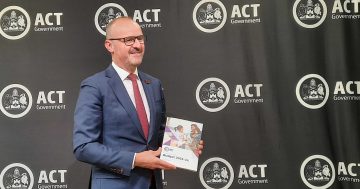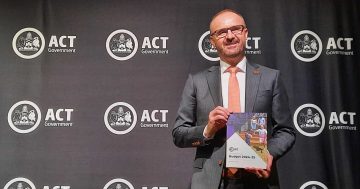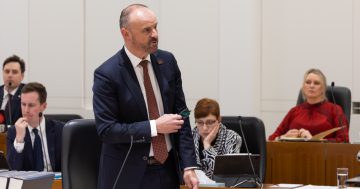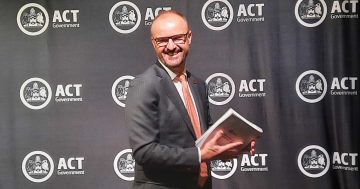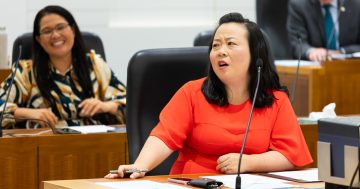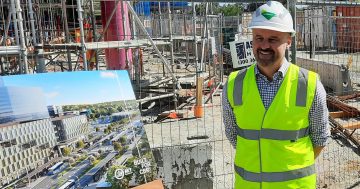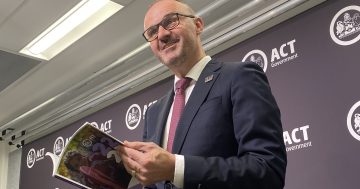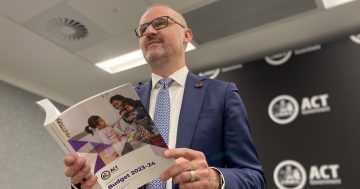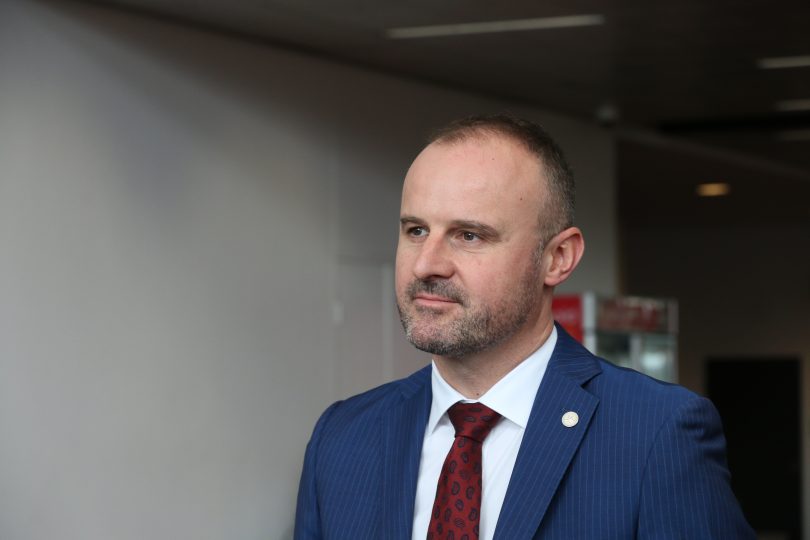
Chief Minister Andrew Barr is facing a difficult Budget position in an election year. Photo: Dominic Giannini.
Chief Minister and Treasurer Andrew Barr was keen to set the scene from the start when talking to media before he handed down the Mid-Year Budget Review late last week.
It was all about our summer of disasters and the looming impact of the coronavirus on the economy, which had little to do with the deterioration in the Budget position over the past six months.
The tripling of the forecast deficit from $89 million to $255 million is due to a fall in GST payments as the national economy slows, fewer land sales and the cost of home buyer concessions. But Mr Barr was preparing the ground for a possibly even bigger deficit than the $255 million now forecast and positioning the government in an election year to keep the ACT’s strong economy ticking over.
It also provides cover for that extra expenditure, which may be more than he would have wanted to spend, as the government exploits to the fullest the power of incumbency and rolls out the “announceables” leading up to the October poll to in a bid to steamroll the Opposition.
When Mr Barr delivered his Budget review speech to the Legislative Assembly on Thursday afternoon, missing was any mention of the actual Budget position, the deficit or the increase in borrowing and debt.
The focus was on the ACT’s acknowledged strong economy, high growth and jobs, and that the government would continue to invest in the services and infrastructure the Territory needs despite the challenges ahead.
A total of $147 million in extra spending across the priority areas of transport, health, and education was outlined, and Mr Barr was unapologetic, saying the times demand government step up.
With the GST situation likely to worsen, the cost of bushfire and hailstorm recovery, and the unknown coronavirus hit to the economy still to be factored in, the government may be doing a lot of stepping up.
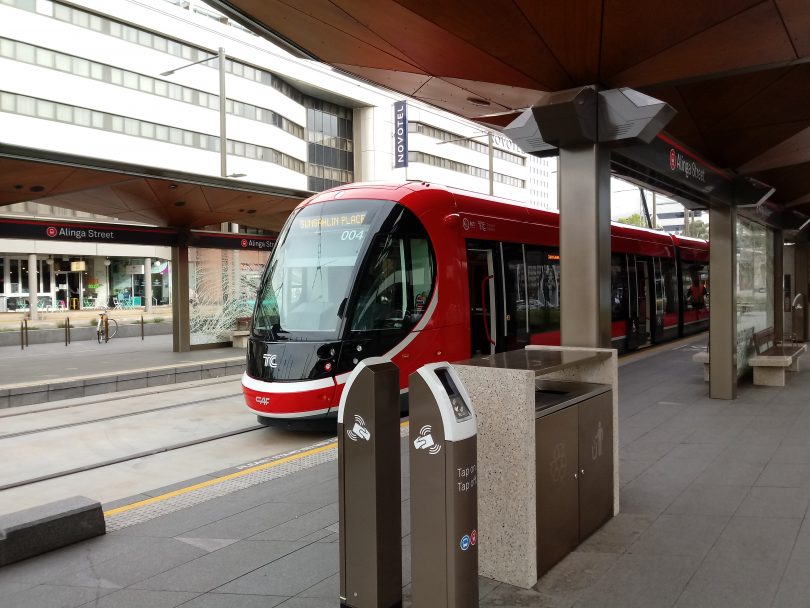
The Alinga Street station in the city: progressing light rail Stage 2A to Commonwealth Park will be an important part of the Barr Government’s election plans. Photo: Ian Bushnell.
The forecasts still have the Budget returning to surplus, albeit a tiny one of $9.6 million, in 2021-22, and then $250 million in 2022-23, but those assumptions will be labelled heroic in the circumstances.
Compounding the situation will be the political needs of the government in an election year. The budget theme is ”building for the future” and Mr Barr will want to maintain momentum with sod turnings, launches and ribbon cuttings.
Symbolic of this is light rail and it seems it is full steam ahead for Stage 2A to Commonwealth Park at least with $31 million brought forward for design work and contracts due to be signed this year. Mr Barr has already alluded to this by saying in an election pitch in the Assembly that now is not the time to go backwards by changing the government.
More problematic is the $500 million SPIRE project at Canberra Hospital where spending and performance has not kept pace with demand, and there are doubts about whether the planned expansion will still cope. A big chunk of the new spending in the Budget Review was $60 million to keep the ED running and elective surgery on track.
Mr Barr is right to assert that there are no economic trophies for producing a surplus and as needs be there is nothing wrong with running deficits. From the federal government down the prized surplus is no longer a priority with disaster management and recovery, and now coronavirus, taking precedence.
And he insists there was some fat in the system to cope with these emerging issues.
Nonetheless, Opposition Leader Alistair Coe will accuse Labor of profligacy and losing control of the Budget at a time when rates are at a record high and still to increase further.
For Mr Barr, this gives voters a clear choice between his “sound economic management” and an Opposition that has pledged to return to surplus faster and cut rates but has so far not identified what spending it will rein in to lower deficits and borrowing.
In the end, Mr Barr will spend what he thinks is necessary to maintain the ACT economy, including on infrastructure such as light rail and services, and for his government to be returned for a sixth term.












